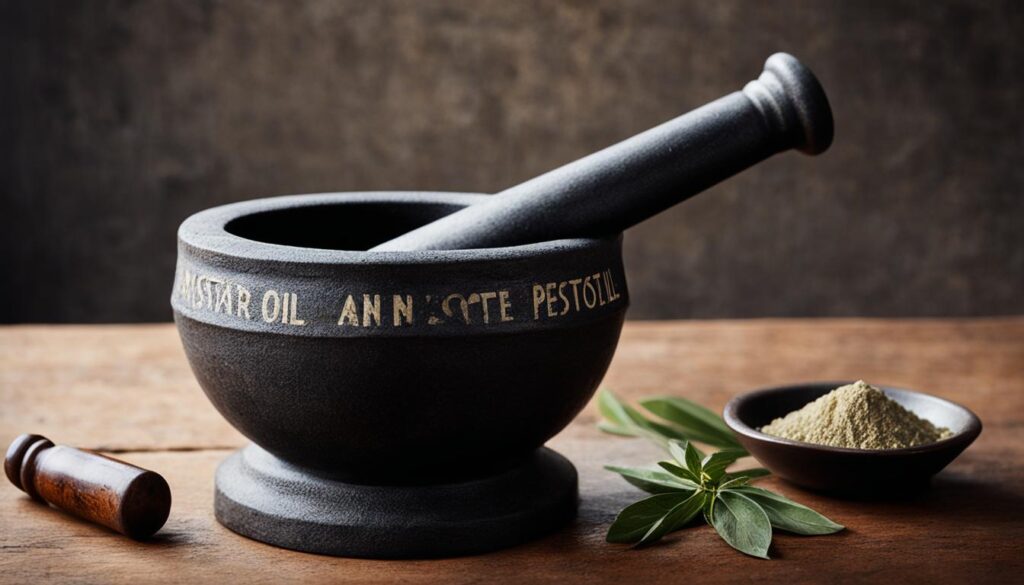Castor oil is a versatile vegetable oil renowned for its various industrial and medicinal uses. Extracted from castor beans, it contains a mixture of triglycerides, with ricinoleic acid being the primary fatty acid. While castor oil is generally legal and widely used, there may be restrictions on its cultivation and production in certain areas due to concerns about the toxicity of the plant and its byproducts.
Castor oil’s legality is determined by individual countries and their regulations. It is essential to understand the legal landscape surrounding castor oil to ensure compliance and responsible use. Let’s explore the legality of castor oil in different regions.
Key Takeaways:
- Castor oil is a versatile vegetable oil with various industrial and medicinal uses.
- There may be restrictions on the cultivation and production of castor oil in certain areas due to concerns about toxicity.
- Understanding the legal landscape surrounding castor oil is crucial for compliance and responsible use.
- Castor oil’s legality is determined by individual countries and their regulations.
Industrial Uses of Castor Oil
Castor oil is a valuable commodity in the industrial sector, finding wide applications in various fields. Its unique properties make it an excellent choice for lubricants, coatings, and precursor chemicals.
Lubricants
The exceptional low-temperature viscosity and high-temperature lubrication properties of castor oil make it an ideal lubricant for different types of engines. It is commonly used in jet engines, diesel engines, and even racing engines to ensure optimal performance and durability. The superior lubricating properties of castor oil help reduce friction and minimize wear and tear on engine components.
Coatings
Castor oil has found its way into the production of coatings, particularly in the development of biobased polyols for polyurethane applications. These coatings offer eco-friendly alternatives while providing excellent adhesion, durability, and resistance to chemicals and weather conditions. The versatility of castor oil in coatings makes it a desirable choice in industries such as automotive, construction, and marine.
Precursor Chemicals
Another significant application of castor oil lies in its use as a precursor for various industrial chemicals. It serves as a primary raw material for the production of nylon 11, a strong and versatile material used in engineering plastics, films, and fibers. Castor oil is also a key ingredient in the synthesis of sebacic acid, which finds use in the production of polymers, lubricants, and cosmetics. Additionally, castor oil is a precursor for 2-octanol, which has applications in flavors, fragrances, and pharmaceuticals.
The high dielectric constant of castor oil also makes it suitable for use as a dielectric fluid in high-voltage capacitors, ensuring efficient electrical insulation and power transmission.
Castor Oil in Traditional Medicine
Castor oil has a long history of use in traditional medicine. It has been employed as a laxative to relieve constipation, although its effectiveness is debated, and excessive use can cause violent diarrhea. Castor oil has also been traditionally used to induce labor in pregnant women, although clinical evidence supporting its efficacy in this regard is lacking. It is important to note that castor oil does not cure cancer or any other disease, contrary to certain claims that have been made.

Castor oil has been used for centuries in traditional medicine as a holistic remedy for various ailments. It is known for its purgative properties, which are believed to help cleanse the intestines and regulate bowel movements. Additionally, castor oil packs have been applied topically to alleviate inflammation and promote healing. However, it is crucial to approach the use of castor oil in traditional medicine with caution and consult a healthcare professional for guidance.
The Laxative Effect of Castor Oil
Castor oil’s reputation as a laxative stems from its ability to stimulate the muscles of the intestines, speeding up bowel movements. When ingested, castor oil is broken down in the small intestine into ricinoleic acid, which acts as a stimulant on the intestinal walls, promoting contractions and facilitating the passage of stool. However, the potency of castor oil as a laxative can vary from person to person, and its use should be supervised by a healthcare provider to avoid potential side effects.
The Controversy Surrounding Labor Induction
Traditionally, castor oil has been used to induce labor in pregnant women who are overdue. It is believed to stimulate contractions by irritating the digestive system, causing the release of prostaglandins, which can trigger uterine contractions. However, clinical evidence supporting the efficacy of castor oil for labor induction is limited, and its use is not recommended without medical supervision. The potential risks and side effects of castor oil on both the mother and the baby should be thoroughly evaluated before considering its use for this purpose.
In conclusion, while castor oil has a historical presence in traditional medicine as a laxative and a labor-inducing agent, its effectiveness and safety in these areas remain subjects of debate. It is important to approach the use of castor oil in traditional medicine with caution and consult healthcare professionals for guidance. The potential risks and side effects associated with its use should be carefully considered, and alternative treatments should be explored when appropriate.
Castor Oil Poisoning
Swallowing a large amount of castor oil can result in poisoning. While the oil itself is not highly toxic, castor beans contain the toxin ricin, which can be present in purified form in certain cases. Symptoms of castor oil overdose may include:
- Abdominal cramps
- Chest pain
- Diarrhea
- Dizziness
- Fainting
- Nausea
- Skin rash
- Throat tightness
It is essential to seek medical assistance in case of an overdose or poisoning.
Legal Restrictions on Castor Bean Cultivation
The cultivation of castor beans, the source of castor oil, may be subject to legal restrictions in some areas. For instance, in Oklahoma, House Bill 2189 aims to prohibit the commercial production of castor beans due to concerns about the toxicity of the plant and the potential contamination of other crops. Violators of the law could face fines, and wheat farmers are particularly concerned about the impact of castor bean cultivation on future wheat crops.
| Area | Legal Restrictions |
|---|---|
| Oklahoma | Prohibition on commercial production of castor beans |
Impact on Wheat Farmers
The legal restrictions on castor bean cultivation have raised concerns among wheat farmers. The potential contamination of wheat crops by castor plants poses a significant risk to the quality and marketability of wheat produce. With castor beans being toxic and capable of causing harm to livestock, farmers fear the negative impact on both human and animal health. Additionally, the introduction of castor plants can affect the overall ecosystem, disrupting the balance of local flora and fauna.
While legal restrictions on castor bean cultivation aim to address environmental and health concerns, careful consideration of the impact on farmers and alternative agricultural practices is crucial. Balancing the need for safety with the economic livelihood of farmers is a challenge that policymakers must navigate.

Castor Oil as Punishment
Castor oil has a dark history as a tool of punishment in various contexts. It was commonly used as a form of discipline for children, although physicians discouraged this practice due to its potential harmful effects. However, in more extreme cases, castor oil was used as a means of humiliation and torture by colonial officials in India, military personnel in Belgian Congo, and fascist regimes in Spain and Italy.
These historical uses of castor oil highlight the potential for harm and abuse associated with its misuse. It serves as a reminder of the importance of using this natural substance responsibly and ethically.
Safety Precautions and Proper Use
When using castor oil, it is important to exercise caution and follow safety precautions. Although the oil itself is not considered highly toxic, allergic reactions can occur in some individuals.
- Keep all chemicals and industrial products, including castor oil, out of the reach of children to prevent accidental ingestion.
- If you experience any adverse reactions or allergies such as itching, redness, rash, or swelling after using castor oil, discontinue its use and seek medical advice.
- Store castor oil in a cool, dry place, away from direct sunlight and heat sources. Proper storage can help maintain its quality and effectiveness.
- Ensure proper handling of castor oil to avoid spillage or contamination. Use appropriate protective equipment such as gloves when necessary.
- In case of poisoning or overdose, immediately seek medical attention or contact a poison control center. Provide healthcare professionals with information about the product ingested.
Remember, safety should always be a priority when using castor oil. By following these precautions and using castor oil properly, you can enjoy its benefits while minimizing any potential risks.
Conclusion
In summary, castor oil is a widely used and legal product with diverse applications. However, there may be legal restrictions on its cultivation and commercial production in certain regions due to concerns about its toxicity.
The industrial uses of castor oil are extensive, including its role as a lubricant, coating ingredient, and precursor chemical. It is a valuable component in various industries, such as automotive, manufacturing, and electronics.
While castor oil has a long history in traditional medicine, its effectiveness for certain claims, such as laxative and labor induction, remains debated. It is crucial to use castor oil safely and responsibly, following proper precautions and seeking medical advice if needed.
Overall, castor oil can be a versatile and beneficial product when used correctly. Understanding its legality, following safety guidelines, and seeking professional advice when necessary will ensure that you can enjoy the benefits of castor oil while minimizing any potential risks.
FAQ
Is castor oil illegal anywhere?
Castor oil is generally legal and widely used. However, there may be legal restrictions on its cultivation and commercial production in certain areas due to concerns about the toxicity of the plant and its byproducts.
What are the industrial uses of castor oil?
Castor oil has various industrial uses. It is used as a lubricant in jet, diesel, and racing engines, as well as in the production of coatings and biobased polyols for polyurethane applications. It also serves as a precursor for industrial chemicals such as nylon 11, sebacic acid, and 2-octanol. Additionally, its high dielectric constant makes it suitable as a dielectric fluid in high-voltage capacitors.
How is castor oil used in traditional medicine?
Castor oil has a long history of use in traditional medicine. It has been used as a laxative to relieve constipation, although its effectiveness is debated. It has also been traditionally used to induce labor in pregnant women, although there is a lack of clinical evidence supporting its efficacy in this regard.
What are the symptoms of castor oil poisoning or overdose?
Swallowing a large amount of castor oil can result in poisoning. Symptoms of castor oil overdose may include abdominal cramps, chest pain, diarrhea, dizziness, fainting, nausea, skin rash, and throat tightness. It is essential to seek medical assistance in case of an overdose or poisoning.
Are there legal restrictions on castor bean cultivation?
The cultivation of castor beans, the source of castor oil, may be subject to legal restrictions in some areas. For example, in certain places like Oklahoma, there are laws aiming to prohibit the commercial production of castor beans due to concerns about the toxicity of the plant and the potential contamination of other crops.
What are the historical uses of castor oil as a punishment?
Castor oil has been historically used as a means of punishment in various contexts. It was commonly administered to children as a form of discipline, but physicians discouraged this practice. In more extreme cases, castor oil was used as a tool of humiliation and torture by colonial officials in India, military officials in Belgian Congo, and fascist regimes in Spain and Italy.
What safety precautions should be taken when using castor oil?
When using castor oil, it is important to exercise caution and follow safety precautions. Although the oil itself is not considered highly toxic, allergic reactions can occur. It is advisable to keep all chemicals and industrial products, including castor oil, out of the reach of children to prevent accidental ingestion. In cases of poisoning or overdose, immediate medical attention should be sought. Additionally, proper storage and handling of castor oil can help minimize the risk of contamination and ensure its safe use.
What is the legality and safety of castor oil?
Castor oil is generally legal and widely used. However, it is important to be aware of any legal restrictions on its cultivation and commercial production in certain areas. When using castor oil, it is crucial to take safety precautions and seek medical advice in case of poisoning or overdose.
